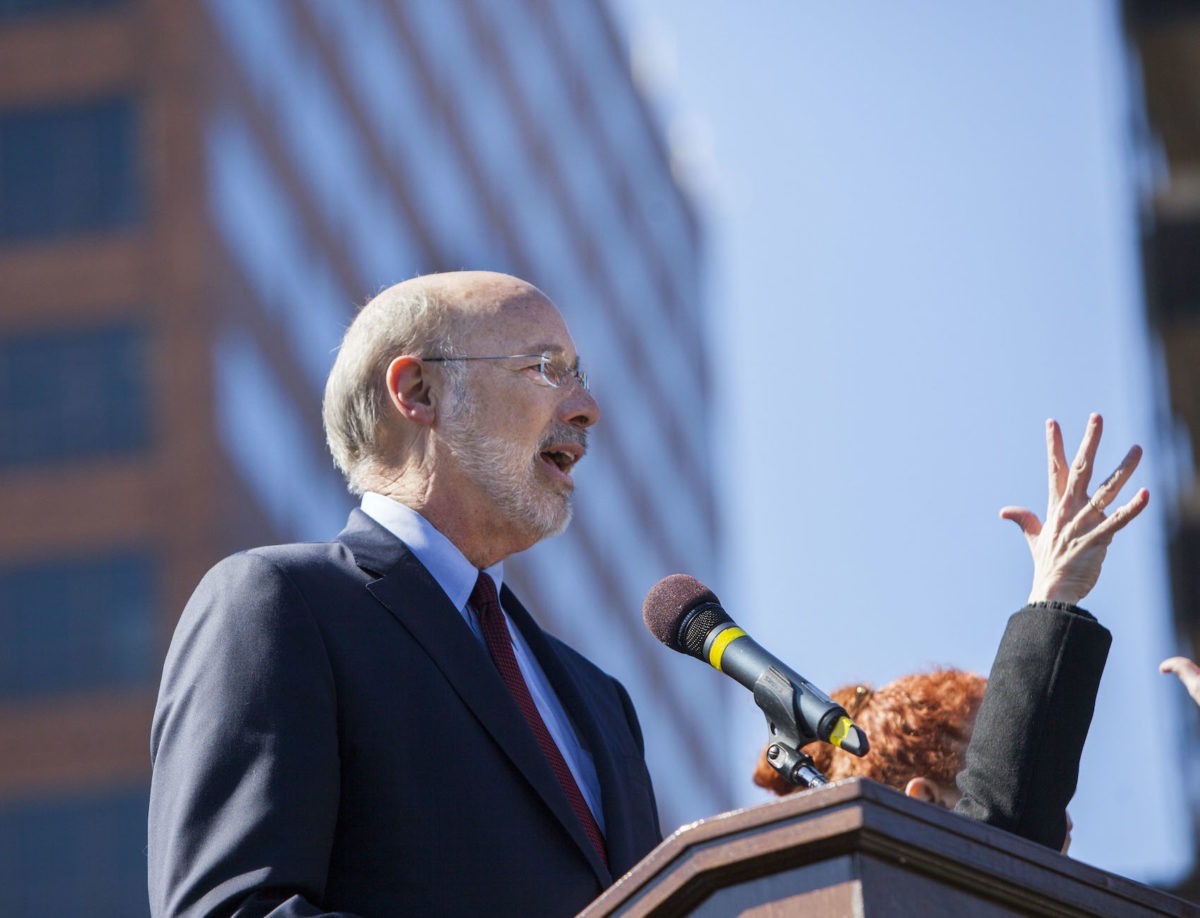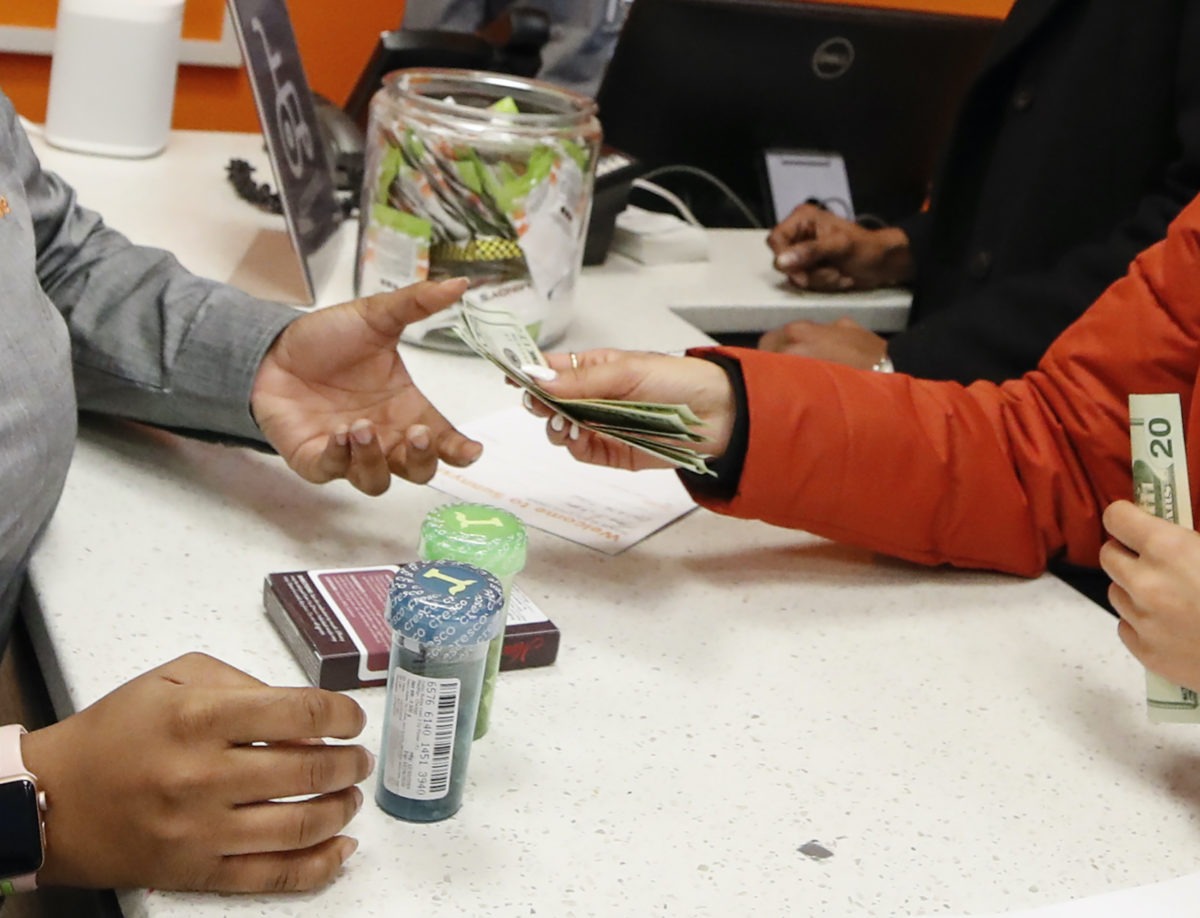Pennsylvania Governor Calls for Marijuana Legalization to Cover COVID-19 Budget Shortfall
Tom Wolf said Tuesday that legalizing and taxing recreational use of marijuana could help solve fiscal woes that arose from the pandemic, and address long-standing racial injustices.

Pennsylvania Governor Tom Wolf on Tuesday called on the state legislature to pass marijuana legalization as part of an effort to help pay for the costs to the state caused by the COVID-19 pandemic.
“Up until the pandemic, things were going pretty well in Pennsylvania,” Wolf said during a press conference Tuesday. “The unemployment rate in Pennsylvania was at an all-time low, we had a record number of jobs and revenue that allowed the government to do the things it needed to do and save money.”
But, as businesses shuttered and thousands of people lost their jobs, the state quickly ran through the roughly $250 million revenue surplus it had at the beginning of March. The state is now running a deficit, the unemployment rate has more than doubled since February, and more than 2 million people have applied for unemployment benefits since March.
Though other state lawmakers are weighing marijuana legalization, Wolf appears to be the first state governor to call for legal pot sales to cover budget shortfalls from the pandemic.
Marijuana legalization, Wolf said, in addition to money allocated to the state from the federal CARES Act, would allow the state to “actually do things that have to be done to help families and businesses that have been devastated by this pandemic.”
Wolf’s plan would allow people 21 years old or older to purchase marijuana from state-run stores, similar to the way wine and liquor are currently sold in the state.
In 2018, Pennsylvania Auditor General Eugene DePasquale issued a report estimating the state could generate $581 million in revenue by regulating and taxing recreational marijuana. The report was based on revenue generated by Washington and Colorado, which both legalized recreational marijuana in 2012.
Wolf’s proposal also earmarks 50 percent of revenues from marijuana legalization to go to “historically disadvantaged businesses” and a portion of the revenue is meant to “further restorative justice programs that give priority to repairing the harm done to crime victims and communities as a result of marijuana criminalization.”
More than 24,000 people were arrested in 2018 in Pennsylvania for possession of marijuana. Black people account for a disproportionate number of the arrests in the state. Those racial disparities have persisted in Philadelphia, even though the city decriminalized personal possession of the drug in 2014.
Wolf has been governor since 2015, and despite championing the state’s medical marijuana program, he has been opposed to legalization until last year, when Lieutenant Governor John Fetterman went on a statewide “listening tour.” According to a report Fetterman’s office released in July 2019, 65 to 70 percent of people who attended the tour supported legalization. Wolf came out in support of legalization shortly thereafter.

Pennsylvania Republicans, who control the legislature, criticized Wolf for his change of heart, writing in a September 2019 letter that they were “disappointed.”
“Our caucus has no plans or interest in legalizing recreational marijuana,” Republican leadership in the state House wrote.
In response to Wolf’s announcement Tuesday, Jake Smeltz, chief of staff to House Speaker Bryan Cutler, said the speaker was focused on finishing the budget. “One priority he does not have is to make sure that people can get high legally,” Smeltz told PennLive.
But during Tuesday’s press conference, Wolf said that he hoped the financial strain placed on the state by COVID-19 may move Republicans who were in opposition to ultimately support the plan.
“I think this is in part recognizing the reality that people use this stuff,” Wolf said of marijuana. “If we actually regulate it correctly … I think it’s also a way of getting some tax revenue from something people are already doing.”
Advocates in Vermont and Texas have encouraged lawmakers to consider legalization in light of the pandemic. “When our state is facing an unprecedented economic downturn, we have to look at alternatives,” Heather Fazio, director of Texans for Responsible Marijuana Policy, told CBS Austin.
Eleven states and the District of Columbia have legalized recreational use of marijuana since 2012. A majority of states also have either decriminalized or made marijuana legal for medical purposes. Marijuana is now completely banned in only eight states.
A 2019 study found arrests for marijuana possession fell significantly in Washington following legalization, though Black people are still more likely than white people to be arrested. In 2018, researchers found legalization led to an increase in clearance rates for violent and property crimes in Washington and Colorado.
Despite roughly two-thirds of Americans supporting marijuana legalization, it remains illegal at the federal level and is classified as a Schedule I drug, the same as heroin and LSD.
President Donald Trump and his administration have spoken out against legalizing marijuana at the federal level, while Democratic presidential nominee Joe Biden has said he supports decriminalization but not full legalization.
Economic costs continue to mount across the country because of the pandemic. Advocates are calling on state lawmakers to allocate more resources to communities facing high unemployment, poor access to healthcare, and the threat of evictions as moratoriums expire. While the federal CARES Act delivered some needed aid, lawmakers and advocates across the country have said another round of relief is crucial.
“Pennsylvanians need relief, they need reform, and they need it now,” Wolf said Tuesday.
